News & Updates


Qiulae Wong recently became leader of The Opportunity Party and, as she tells Mike Casey in the second episode of our new series Political Power, she has been on the electric bandwagon for a while now.
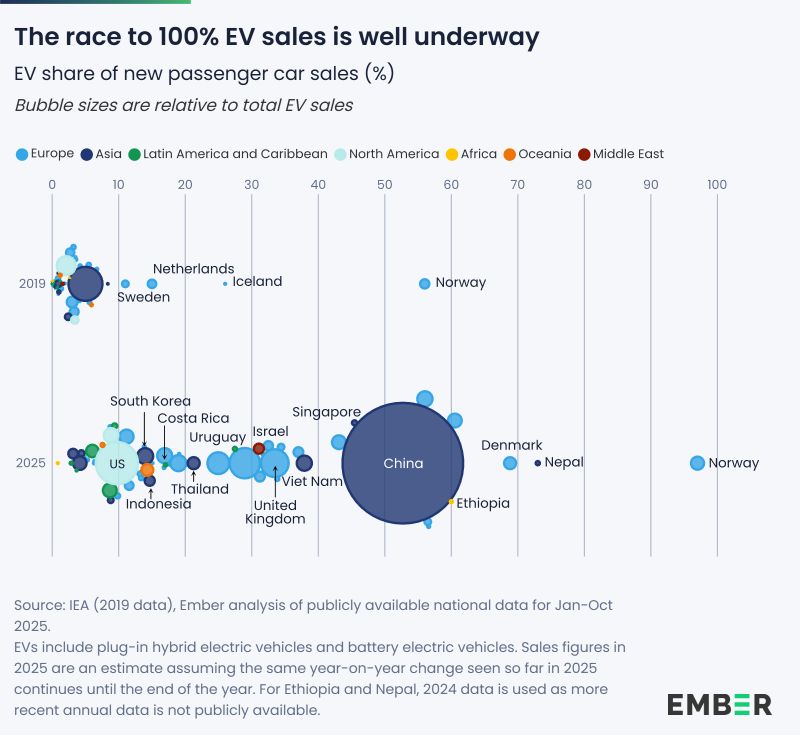

In the last Electric Avenue of 2025, we look at the two biggest trends in the world of energy; the Government goes electric for its fancy fleet upgrade; Nick Offerman offers his services to a US campaign extolling the virtues of EVs; Australia shows what's possible in new homes when you add solar, batteries and smart tech; a start-up selling portable solar and battery systems that wants it to be as easy and common as wi-fi; and The Lines Company looks to put some solar on the roof of the Ōtorohanga Kiwi House.


When it comes to electric farming, "the numbers are becoming undeniable," says Nicholson Poultry's Jeff Collings. With 60kW of solar, a Nissan Leaf as a 'farm quad', electric mowers, an electric ute that can run a water blaster, and even a chicken manure scraper made out of a wrecked Tesla that, as Rewiring's Matt Newman says, looks a bit like something out of Mad Max, "almost everything is electric". There aren't many others in New Zealand who have gone this far down the electric road. And, with his electric Stark Varg, the fastest off-road motorbike in the world, he's obviously having plenty of fun on that road, too.
.png)

RNZ's Kate Newton reports on the "madness" of thousands of new piped gas connections being installed into houses every year, despite dwindling supplies and higher lifetime costs.
Casey said it was positive that the numbers showed people starting to leave the gas network of their own accord, but not all households were in a position to make that choice.
"If we don't plan for a decommissioning of the gas network, then it's going to be a chaotic transition, where vulnerable New Zealanders really suffer."
As the research of Rewiring and others has shown, gas is expensive, it's getting more expensive, it's terrible for your health when burned inside and there are substitutes available right now that, on average, do the same job for less money over the long run for households, would save the country billions on health costs and lost productivity, and don't pump out unnecessary emissions.
Around 300,000 homes and businesses have connections to the gas network (it’s estimated another 300,000 use more expensive bottled gas, mostly in the South Island). The number of active connections has started to decline recently and the country’s largest gas network, Vector, is forecasting no new residential or commercial connections after 2029.
Upfront capital costs are the main barrier for many homes, which is why we're working hard on a low-interest, long-term loan scheme that can be used to pay for electric upgrades, including hot water heat pumps. This would mean paying for a new thing with a loan would be cheaper than paying to run the old thing.
Read more about the scheme here.
Disconnection costs are also a major barrier. We have seen examples where households permanently disconnecting from the network have been charged between $1,000 and $2,000 to have a meter permanently removed (i.e. digging up the pipes to the road), even though it should only cost customers $200 to have the connection capped at the house.
RNZ even reported a case where a business customer was quoted $7,500 but took the case to Utilities Disputes, where complaints about disconnection costs have been rising.
The Australian Energy Regulator and the state of Victoria have now capped the disconnection fees to a few hundred dollars to stop this kind of behaviour and protect households.
.png)

"My message is to not wait it out – instead, grab the opportunity to get ahead. In the long term, unless we hit another Maui, which is unlikely and would take decades to bring online, the era of cheap, abundant gas is over. Business leaders need to start planning now." That's EECA's chief executive Marcos Pelenur writing in the Herald about businesses struggling with rising gas prices and faster than expected declines in gas reserves.
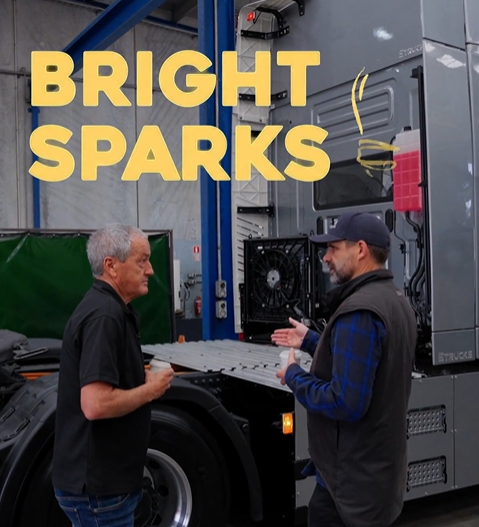

Talk about driving change!ETrucks' Ross Linton is at the forefront of New Zealand's nascent electric trucking scene and can claim responsibility for a number of firsts, from the country's first electric concrete truck to the country's first battery swap set up. Since he brought his first electric truck in to the country back in 2018, the technology has advanced massively and driving on electrons has become quite a bit cheaper than diesel and, not surprisingly, that's inspiring a great deal of interest among businesses.
.png)

How the sun led to higher salaries for teachers in the US and why this should be happening here, too; how "the once-rigid link between economic growth and carbon emissions is breaking across the vast majority of the world" as electrification gives more countries a productivity boost (and how that would allow New Zealand to keep embracing our long, languid summer break); solar continues to weather storms and provide 'free resilience'; Dunedin laundry company Preens goes electric and saves over 300 utes worth of emissions; the company that wants you to drink diesel exhaust; and a wonderful rundown of the Kill Bills tour - and the national electrification opportunity - from one of the tour sponsors.
.jpg)

As gas supplies decline and prices rise, electrification is the best bet, but it's hard for big businesses without government support. Kirsty Johnston talks to Rainbow Nurseries about how it made the switch with help from a grant, and others who are unsure they will be able to keep getting gas. As one busines owner said: "We never considered the risk to the business of not actually having natural gas," one participant said. "We always expect that the price could fluctuate… But we never anticipated maybe having no gas coming from the pipeline." There are ways for the Government to help. And there is a huge amount of new renewable electricity coming on stream, so there won't be a shortage of electrons.
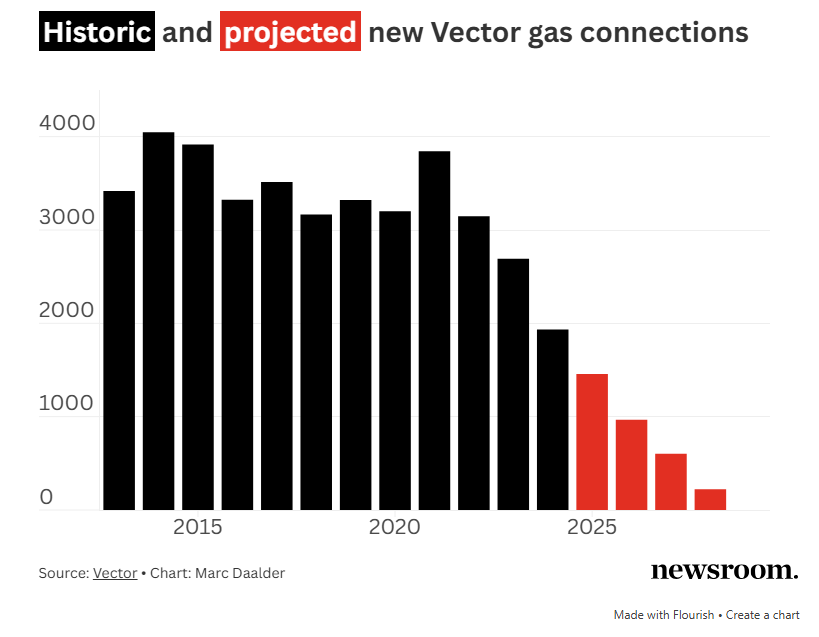

Marc Daalder reports on Vector's declining gas network and how it is responding to falling customer numbers. As he writes: "Gas in Auckland is formally past its peak in the latest forecasts from Vector, the city’s only gas distribution business, with new connections set to fall to zero in three years ... From 2029, there would be no new residential or commercial connections – with new industrial connections projected to have already ceased this year."


'I'm a bogan and I have no problem with the bastardisation of motor vehicles. You can stick whatever motor you like into whatever else you like.' Antz Davies, you are a true boganic Bright Spark and we salute you because it's the bogans that we need to be convincing! Davies is the main brain behind Watt Rods, a Lower Hutt company that converts old cars to electric. "Any and all vehicles, old or new, four wheels or two, big or small, on road or off, fully customised to your requirements."
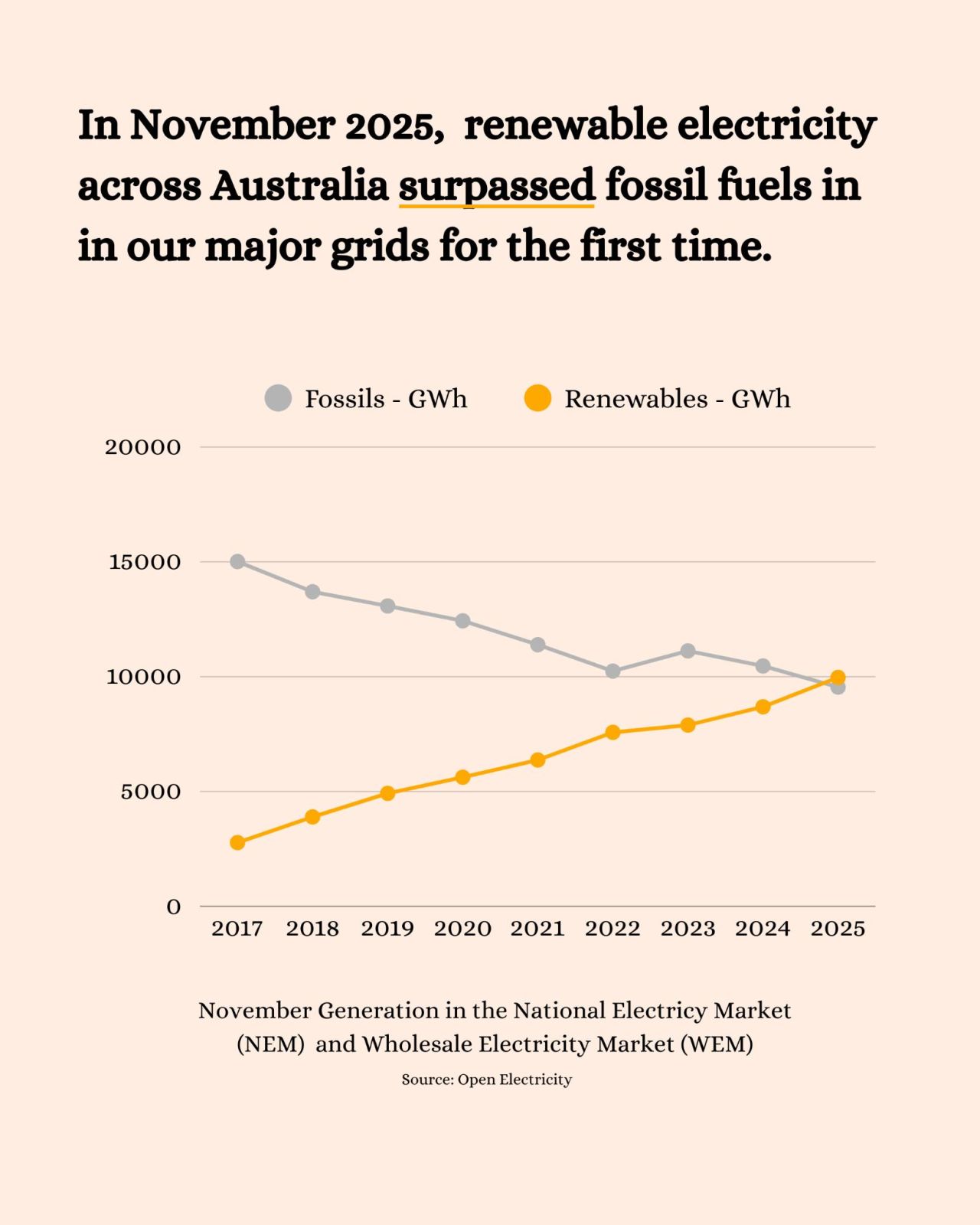

It's time to show some interest in low-interest, long-term energy loans; looking enviously across the seas at Australia's energy push; an electric atmosphere beckons as the Special Olympics heads to the all-electric Parakiore indoors sports and swimming centre in Christchurch; EV Maritime's Michael Eaglen and Evnex's Ed Harvey share their views; Volkswagen follows the honey in its electric van; and climate comedian Oli Frost generously creates an ad campaign for French bank Société Générale.


You may have heard there's an 'electric election' coming up next year. We've met with a huge range of politicians from right across the spectrum and the ones who pick up what Rewiring is putting down are often those who have already invested in solar, batteries, EVs, heatpumps and induction cooktops and have experienced the benefits first hand. That's why we're kicking off a new series called Political Power, where we talk to some of our decision makers about the decisions they've made in their own lives and how they plan to reduce energy bills for others, reduce emissions and improve our resilience and energy security.


Electrify everything. Electrify everyone. Electrify New Zealand. That's Rewiring Aotearoa's vision and our CEO Mike Casey gave a condensed version of what we've done and what we're doing at our Electric Christmas party recently. As he said to a large crowd at Ecotricity, which kindly hosted the event and provided the excellent electric cake, 2024 was the year of the thinking, 2025 was the year of the doing, and 2026 will be the year of mass adoption.
.jpg)

Rewiring Aotearoa agrees with many of the main themes in BCG’s Energy to Grow report - domestic gas is diminishing quickly and won't recover, our hydro and geothermal assets offer us big advantages in the energy transition, renewables are coming at the fastest rate ever, and bold and decisive action is needed in short term to “get out the other side with affordable and secure renewable energy”. But, just like its last report in 2022, it has largely failed to consider the people who actually pay the energy bills and failed to account for the huge role customers with solar, batteries and EVs could play in our energy system.
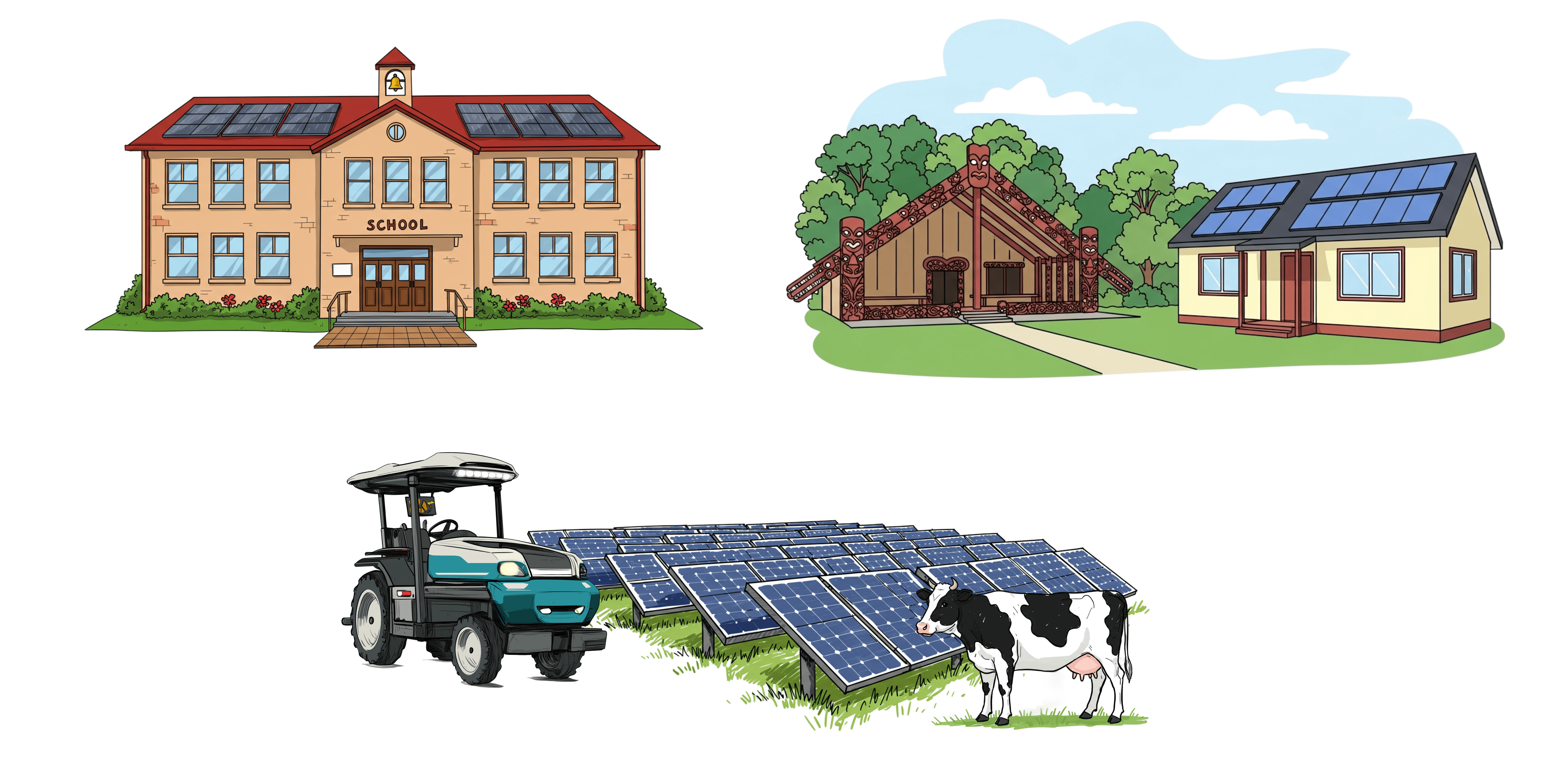

The Electricity Authority recently consulted on two important issues: 1) Who is able to access rewards for supplying power at peak times. And 2) How much energy consumers can export. We have again been blown away by the response from the people of New Zealand on these important proposals, and humbled that a large number used the information provided by Rewiring as the foundation for powerful submissions. Here's our summary of the responses and our take on the consultations.
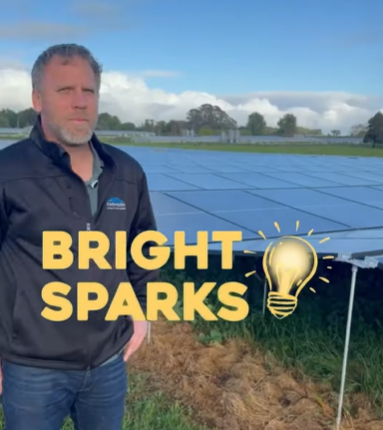

Solar is already cheap and an increasing number of farmers are discovering that, but Mattt Luscombe has found a way to make it even cheaper. The founder of FarmGen says architects like steel, but engineers like efficiency and taking steel out of the build and instead relying on ground anchors means the owners get more generation for less outlay.


World Energy Council shows cost is now the biggest issue in New Zealand's energy sector; more New Zealanders running on the sun; as reality catches up with gas users, the Google data tells a story in Australia; focus on the benefits for climate comms; electric events FTW; and Tom Sainsbury gets dirty for Uber Electric


We love a bit of renewable hydro power in New Zealand, but Ray Tomlinson from JT Group has brought a new meaning to that phrase with what he calls "probably the first battery electric operated commercial water blaster".


Adrian Maidment talks to Mike Casey about how New Zealand can save billions by electrifying everyday machines, from hot water cylinders and cooktops to cars and farm equipment. He shares the six smart decisions every Kiwi should make over the next 15 years.


Queenstown Electrification Accelerator project lead Josh Ellison explains the potential of V2G and the launch of the country's biggest trial in Queenstown. As he said: "A new EV can store three to four days’ worth of household electricity use in its battery, and EV owners with a V2G charger and rooftop solar could keep charging their vehicles indefinitely."


Rewiring Aotearoa is very supportive of the Electricity Authority’s introduction of requirements for distributors to provide payments for exports at peak based on the avoided long run marginal cost of peak demand. This will fairly support consumers to invest in batteries and encourage people to supply surplus energy to the network when it is needed, benefiting all customers through lower electricity costs that we all pay through our power bills. To unlock the full extent of these benefits it is important that the intended group of customers have access to these payments. This intended group is the small businesses who do not have the bargaining power to negotiate fair benefits. It excludes large customers who are already more likely to be rewarded for the benefits their injection (exports) provides. Unfortunately the preferred proposal the Electricity Authority (the Authority) has set out in this consultation will not achieve this, and will reduce benefits to customers and does not align with the Authority's statutory objectives.

Rewiring Aotearoa is very supportive of the Electricity Authority’s introduction of requirements for distributors to provide payments for exports at peak based on the avoided long run marginal cost of peak demand. This will fairly support consumers to invest in batteries and encourage people to supply surplus energy to the network when it is needed, benefiting all customers through lower electricity costs that we all pay through our power bills. To unlock the full extent of these benefits it is important that the intended group of customers have access to these payments. This intended group is the small businesses who do not have the bargaining power to negotiate fair benefits. It excludes large customers who are already more likely to be rewarded for the benefits their injection (exports) provides. Unfortunately the preferred proposal the Electricity Authority (the Authority) has set out in this consultation will not achieve this, and will reduce benefits to customers and does not align with the Authority's statutory objectives.
Read moreShareable linkDownload
We strongly support the Electricity Authority’s aim of removing unnecessary barriers to more efficient investment in distributed generation and maximise the benefits it brings for all New Zealanders. It is great to see the progress the EA is making in its Networks connection workstreams which will translate in real benefits for consumers. We agree with the Electricity Authority's description of benefits from distributed generation and support the proposals set out in this consultation although propose some additional measures and modifications.
Read moreShareable linkDownload
Solar and batteries - in homes and EVs - offer signicant resilience benefits during times of crisis and the Ratepayer Assistance Scheme can help unlock private investment.
Read moreShareable linkDownload
Electrification is the single biggest opportunity to improve fuel security in New Zealand and that's why we think we need a bold national energy independence plan, not just more incremental changes to our current fuel security plan.
Read moreShareable linkDownload
Unmanaged EV charging that occurs at network and system peaks could add unnecessary electricity infrastructure investment, increasing bills for all customers. Investment in our networks is scaled to meet peak demands and has the potential to significantly increase electricity bills over the coming decades. It is important we take action to shift demand, where it makes sense, to avoid peak demand increases. Rewiring Aotearoa is very supportive of the efforts the Ministry of Business Innovation and Employment is taking to consider options to deliver a more flexible electricity system that will lower system costs for all consumers. Uptake of smart EV chargers is one way to manage peak EV demand and support a lower system cost. However we do not think there is a strong enough case to mandate that all fixed EV charging units sold in New Zealand must be smart.
Read moreShareable linkDownload
Rewiring Aotearoa supports the proposed changes to Multiple Trading Relationships (MTR) (allowing two traders – distributed generation and consumption), which will increase consumer choice and introduce more competition to retail tariffs. For example, it will disincentivise tariffs that offer competitive export tariffs, but also ramp up consumption tariffs. The Electricity Authority should also implement changes at this time that require retailers to allow large sites to share solar across multiple co-located installation control points (ICPs, i.e. ICP aggregation), and facilitate peer to peer trading for small scale renewable generators with local sites. Rewiring Aotearoa disagrees that delaying these steps via a staged approach is in consumers best interest. Consumers should not have to wait until demand increases to unlock the benefits of their solar and battery systems or access more competitive options from retailers. This should be supported now, to help consumers make investment and retail tariff decisions that reduce their overall energy bills.
Read moreShareable linkDownload
We appreciate that broader resource management reform is underway that will ultimately provide a more consistent national framework. However, we cannot afford to wait for the perfect system while workable solutions are delayed. In the meantime, inconsistent and unnecessary consenting requirements for small-scale ground-mounted solar are slowing down projects that could deliver immediate benefits - lowering energy costs, strengthening resilience, and supporting the grid. While long-term reform is important, immediate adjustments will ensure small-scale solar isn’t held back by outdated or inconsistent rules.
Read moreShareable linkDownload
"Investing in natural gas in homes doesn’t make economic sense anymore for New Zealanders ... Rewiring Aotearoa’s view is that the Government should support a managed transition away from natural gas for the homes and non-industrial businesses connected to reticulated natural gas distribution networks. This would help address inequity for households on low incomes and renters, and provide greater certainty over how quickly customers will disconnect, when networks would likely retire and cost recovery timelines."
Read moreShareable linkDownload
Rewiring Aotearoa's submission highlights that successful digitalisation should allow customers to maximise benefits from their provision of demand flexibility and solar and battery exports, without third parties (aggregators or VPPs) routinely taking a cut of the value. Retail offerings that include time of use prices and fair export tariffs will be key enablers of successful digitalisation of the electricity system. Customers need a fair deal through their electricity prices and export tariffs. This means the customers need to have the option to choose from a range of retail tariffs that include time of use prices, fair export tariffs (that reflect the value in the wholesale market) and symmetrical export tariffs from distributors.
Read moreShareable linkDownload
Rewiring Aotearoa is extremely supportive of the focus the Electricity Authority is putting into exploring opportunities and seeking views on a more ‘decentralised’ electricity system. It’s great to see the release of the Green Paper seeking views from New Zealanders on the role they can play in the future electricity system and how a more decentralised electricity system should evolve. As the Green Paper explains New Zealanders will benefit from a more decentralised, community-centric energy system through lower energy bills, greater energy resilience, fuel security and lower emissions. However there are some assumptions and emphasis in the Green Paper that we think needs to change
Read moreShareable linkDownload
Rewiring Aotearoa is supportive of the Innovation and non-traditional solutions allowance (INTSA) and the development of Guidance for submissions. Read our full submission by downloading the document.
Read moreShareable linkDownload
While the potential implications of the Bill are wide-ranging, our submission has focused on the potential implications for the electrification of Aotearoa NZ if the Bill is enacted as proposed. This is pertinent to Rewiring’s work, because one of our core aims is to help reduce energy bills for customers - NZ’s households, farms, and businesses. Significant changes are needed to fix the status quo, and we are concerned that the Bill may inadvertently bake in the existing rules governing the sector.
Read moreShareable linkDownload
Rewiring Aotearoa is supportive of the development of Publicly Available Specification for Residential solar photovoltaic (PV) and battery storage systems guidelines. These guidelines can provide a consolidated and trusted source of information to help households navigate the process of choosing and installing solar PV and batteries. There is some messaging and information in the PAS that we think needs to be changed or added to provide households with the best advice to support them to maximise benefits from solar PV and batteries. This includes removing the focus on pay back periods and informing households about cost savings from day one from solar PV and batteries financed over the life of the system. Households also need information about the potential risks of some existing lease to own sales models which provide little real benefit to households with the bulk of the savings captured in suppliers profits. Download the document to read our full submission.
Read moreShareable linkDownload
In a cross-submission, Rewiring Aotearoa has responded to a range of concerns raised by other submitters in the Energy Competition Task Force's consulation.
Read moreShareable linkDownload
We support the role that government procurement can play in benefitting every community across the motu. We agree that simplifying and streamlining the procurement process is important, and reducing rules is a logical starting point. However, this should not undermine key considerations and past efforts in ensuring government spending supports long-term positive outcomes. Government procurement can support us to go for growth by increasing productivity of energy, which is a fundamental economic input
Read moreShareable linkDownload
Overall, Rewiring Aotearoa welcomes the objectives of this package of proposals. from the Energy Competition Task Force. We view the package as a critical step in improving energy system outcomes for all consumers. We consider retailers paying consumers fairly as a critical step, and we are mostly satisfied with the Task Force’s approach to this (initiative 2C) and think it will create better outcomes for New Zealand consumers and the energy system as a whole. In contrast, the Task Force’s preferred option around how distributors are required to reward peak input from consumers (initiative 2A) will not in our view meet the Task Force’s (or the Electricity Authority’s) stated objectives.
Read moreShareable linkDownload
Focusing on the emissions reductions at home through electrification is a major opportunity (and challenge) for Aotearoa NZ. Homes, farms, and businesses must play a role in driving emissions reductions through electrification and the potential must be recognised and addressed to our 2035 international climate change target.
Read moreShareable linkDownload
Rewiring Aotearoa believes we need to make better use of our existing infrastrucuture, see customers as an essential part of a 21st Century energy system and that electrification will lead to much greater energy security and resilience.
Read moreShareable linkDownload
Rewiring Aotearoa's submission to the Electricity Authority on its Network Connections Project - Stage One is in and it is good to see the Authority practicing its statutory objective of protecting the interests of consumers.
Read moreShareable linkDownload
The Ministry for Business, Innovation and Employment opened consultation on a discussion document about amendments to the Electricity Safety Regulations to expand the permitted voltage range for electricity supply. Rewiring Aotearoa's submission believes changes are needed to prepare for the rapid adoption of customer energy resources, and electricity distribution companies need to be compelled to allow export limits to be increased.
Read moreShareable linkDownload
The Department for Prime Minister and Cabinet and the Ministry for the Environment proposed a topic for a Long Term Insights Briefing entitled 'Everyone plays a part: building New Zealand’s resilience in the context of global trends and our unique natural environment'. Rewiring Aotearoa's submission says energy security and resilience, critical infrastructure failing and commodity/energy price shocks are especially important for Aotearoa NZ’s resilience to future challenges, and farms can also play an important role.
Read moreShareable linkDownload
Our ERP2 submission outlines what we think needs to be done to improve the Government's plan to reach our climate targets, electrify the Aotearoa New Zealand economy and build a fairer future energy system for New Zealanders that saves people money and does not leave anyone behind.
Read moreShareable linkDownload
There is a relevant saying: ‘Information wants to be free’. While the proposed Consumer and Data Product Bill takes a step in that direction, it does not offer the level of freedom that could be technically accomplished, nor the level of freedom that is likely to unlock the maximum level of innovation.
Read moreShareable linkDownload
Rakiura / Stewart Island faces the highest electricity prices in New Zealand. Successive governments have funded report after report and numerous fly-in visits by Ministers have failed to change this situation for the local community. Rewiring Aotearoa believes the opportunity is to harness existing solar and battery technology to deliver significant cost-of-living savings and reduced emissions at scale via electrification on Stewart Island right now. With financed solar and batteries, electricity usage costs for residents could be halved without delay. Rewiring Aotearoa has been engaging with the local community, who have been sending us their power bills. On Saturday 27th April some of the Rewiring team visited Stewart Island (including Mike Rewi who has strong whakapapa to Stewart Island). What we are hearing from this community is many locals fear the proposals and the likely “preferred option” will be focused on replacing current diesel generators, not on reducing the cost of energy for consumers. Our proposal outlines Rewiring Aotearoa’s pitch for an alternative approach to develop a community-led energy solution for the Island.
Read moreShareable linkDownload
Overall, we encourage the Commission to think beyond competition merely as a driver for innovation, to consider the outcomes from innovation for the long term benefit for New Zealanders. Rewiring Aotearoa believes one such outcome from market innovation is supporting the electrification opportunity for Aotearoa New Zealand. The Commission has the opportunity to play an active role in driving this not just through the energy market, but also through the personal banking market. It is important that these functions are not seen in isolation, but as a system, to better realise the Commission's role in delivering on NZ’s emissions reduction plan, and 2050 Nationally Determined Contribution.
Read moreShareable linkDownload
18 March 2024: New Zealand is one of the first places in the world where electric appliances and vehicles are now more affordable than their fossil fuel equivalents. A new report has shown that, on average, homes currently using gas appliances and petrol vehicles could save thousands every year if they went electric and got their electricity from a combination of rooftop solar, home battery and New Zealand’s already highly renewable grid.
Read moreShareable linkDownload
In this future, consumer infrastructure needs to compete on a level playing field with traditional infrastructure – if a $10,000 battery on a consumer’s premises can provide the same service as a $20,000 supply-side asset (a network or generation investment), the consumer’s asset should be selected for the service. However, today there is a systemic bias towards traditional infrastructure largely because it is seen as significantly more ‘dependable’. There are a variety of historical reasons for this. Our primary context to this submission is that many of the assumptions and rationale for this bias are quickly falling away, and DPP4 provides a significant opportunity for the Commerce Commission (the Commission) to reset the assumptions and correct some of this bias.
Read moreShareable linkDownload
The EA has the ability to take a leadership role in the energy transition on behalf of electricity consumers. Far more than the Commerce Commission’s oversight of EDBs investment plans, the EA’s network pricing workplan gives consumers agency in the development of the electricity system. When consumer agency is stifled, they will likely have significantly worse financial outcomes on their bills. Much of the necessary changes have been demonstrated already locally or overseas, and the remaining question is not if the changes are possible but if we as a nation will have the courage to implement them on the timeline required to drive better energy transition outcomes for consumers.
Read moreShareable linkDownloadThe biggest barrier to unlocking the household savings that electric technology offers - as well as the many other public benefits - is the upfront cost. Long-term, low-interest energy loans are the ladder we need to get more people over that.
Read moreWe need gas in the short term to generate electricity and for certain industries to keep operating, but gas is expensive, it is likely to get more expensive, and it is running out faster than expected. So how do we use it now? How are shortages and price rises impacting homes and businesses? And what can we replace it with?
Read moreWe need great urban design that encourages electric public and active transport for safe neighbourhoods and healthy lifestyles, but we also need electric cars for rapid decarbonisation and to address all the vehicle travel we realistically aren’t going to shift or avoid. These two things can be complementary.
Read moreWhen it comes to our energy system, we could do the bare minimum and pay the price, or we could think ahead and reap the rewards. Here's what both of those options could look like in 2030.
Read moreYou will always have to pay for an energy subscription. Using renewable electricity in electric machines (and ideally running on the sun) is the cheapest energy subscription you can get. Here's how the numbers stack up.
Read morePlenty of people need cars (and plenty of people still want them), and other vehicles are literal engines of prosperity. We don't have to give them up to reach our climate goals. We just need them to be electric.
Read moreSolar on our rooftops, farms and businesses can displace the emissions generated by burning fossil fuels in our homes and especially our cars, provide the extra electricity we need to run our electric machines, help bring the cost of electricity down for everyone on the network, and improve our energy security by keeping water in our hydro lakes for when we need it most.
Read moreWe often hear from people who aren’t sure if switching to an electric alternative is the right move. One of the most common questions we get asked is ‘will switching to an electric machine actually reduce my carbon footprint if creating the new machine or materials produces emissions?’It’s a fair question, and we completely agree it’s important to think about the full life cycle of the products we buy and use. Electric alternatives, including vehicles, often produce more emissions than fossil fuel equivalents during manufacturing. But, over the lifetime of the machine, they create much less carbon pollution because they don't burn any fuel.
Read moreFossil fuels for homes, transport and industrial processes make up the vast majority of the country’s total energy consumption. Electrifying the machines that use these fossil fuels means we will use more electricity but much less energy overall.
Read moreAn electrified energy system is actually full of opportunities for redesign, reuse, recovery and recycling. There are opportunities for innovators and entrepreneurs to generate value across the lifespan of every energy asset, not least the return of its components to the manufacturing cycle. To explore this further, Rewiring Aotearoa has partnered with Circularity, local experts in circular design and strategy, to explain what the circular economy is, how to integrate circularity into the design of energy systems, and the role of policy strategy to make it happen.
Read moreThere are no free lunches in energy. But some lunches are far, far cheaper than others. Electrifying everything will massively reduce the overall material and energy requirements of the global energy system. This can be said with high confidence. To be sure, renewable energy systems take materials and energy to build. But this is dwarfed by the mind-boggling scale of extraction, consumption and wastefulness of fossil energy.
Read morePeople sometimes talk about ‘carbon tunnel vision’ – that is, the single-minded pursuit of emission reductions at the sake of everything else. But this is the wrong way to think about electrification. It isn’t only about emissions (even though preventing the world from dangerous overheating is quite the co-benefit). It isn’t only about the tech or the kit: the rooftop solar panels, the batteries, the electrified appliances and vehicles. These are just the means to an end. Electrification is about people and it is a fundamentally better way to power our lives and livelihoods.
Read more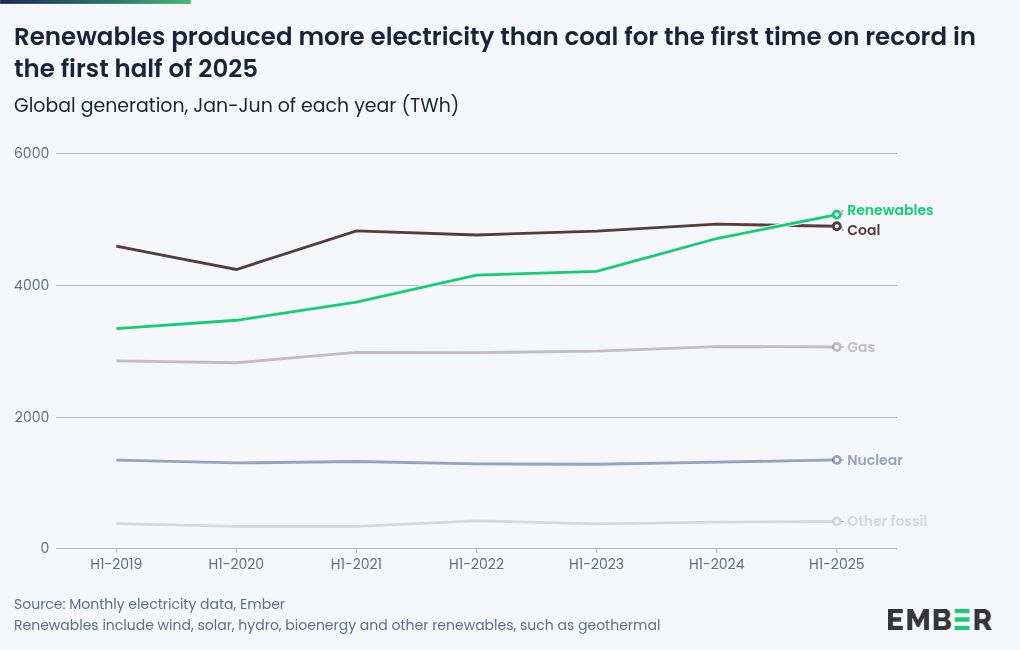

Renewables take over from coal for electricity generation and wind and solar match the world's growth in demand; old EV batteries are proving popular; an Australian study shows that solar panels can make you money, not just save you money; take a trip on a luxury electric solar-powered houseboat in Africa; and the amazing 'solar powered clothes dryer'.
Read more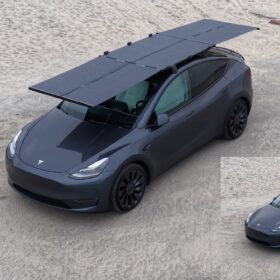

ChargeNet reaches double figures and looks ahead to much more electric transport; an Aussie town at the end of the line goes for pumped hydro, so how does it stack up here?; a new version of rooftop solar offers a little top up for EVs, while trials continue for wireless charging on the road; the EA's Power Innovation Pathway is open for business (and we need all the customer-focused innovation we can get); and a suggestion for those environmentally-focused email footers.
Read more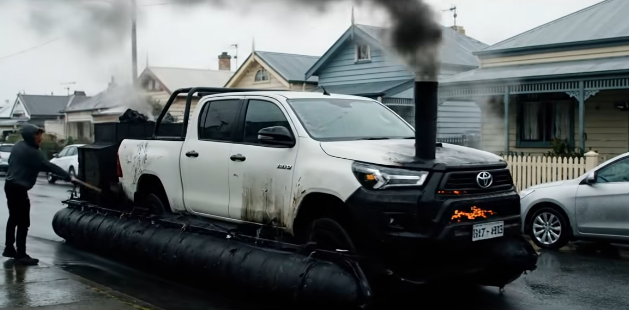

Big report lays out the massive opportunities for electric cars and trucks to provide power for homes or the grid and earn owners money; Lake Wakatipu could be getting some electric ferries; large trucks are increasingly going electric as hydrogen remains tiny; Hannah Ritchie clears the air with her new book; Transpower prepares for another 40,000 kettles on Saturday night; and some coal-based innovation on the West Coast.
Read more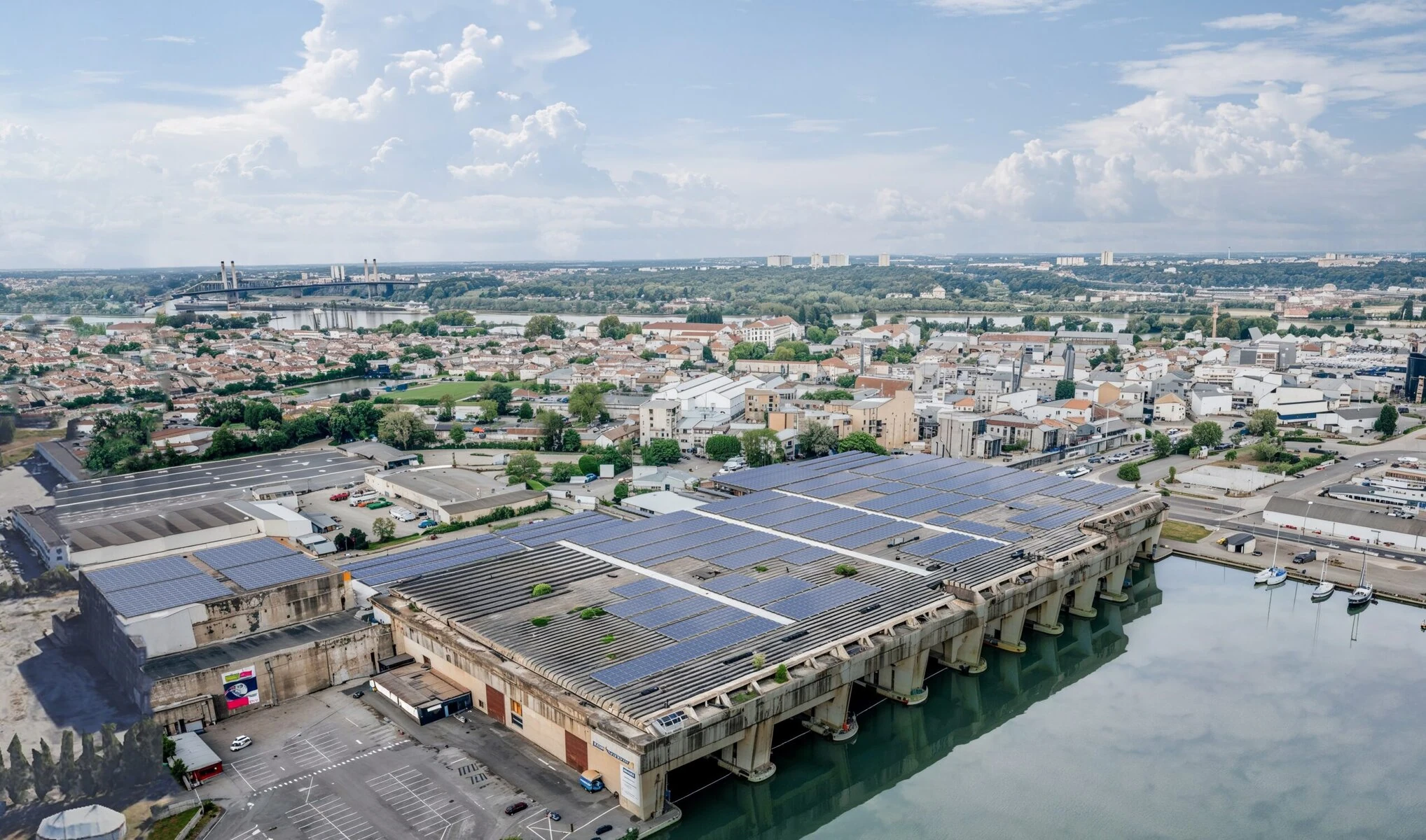

Bordeaux is embracing solar - and modern tech means heritage issues can generally be overcome; Mainfreight welcomes two new electric trucks to its fleet in the US, while Foodstuffs North Island celebrates an electric anniversary; why the radical left and the radical right can unite on solar; Edmund Becquerel's surprise discovery; and why better technologies sometimes take a while to catch on.
Read more

Yet more stunning stats on Australia's household battery boom after the subsidy was announced; the countries doing best on wind and solar on a per capita basis; a big report on China's energy transition looks like bad news for fossil fuels; the lower North Island is set to get the Southern Hemisphere's first battery electric trains, Samoa is set to get some electric solar catamarans, and Auckland is set to get zero-emissions deliveries from Ikea; the Shameless Plug podcast brings kitchen diplomacy to the table; and a song in the key of science from Elle Cordova.
Read more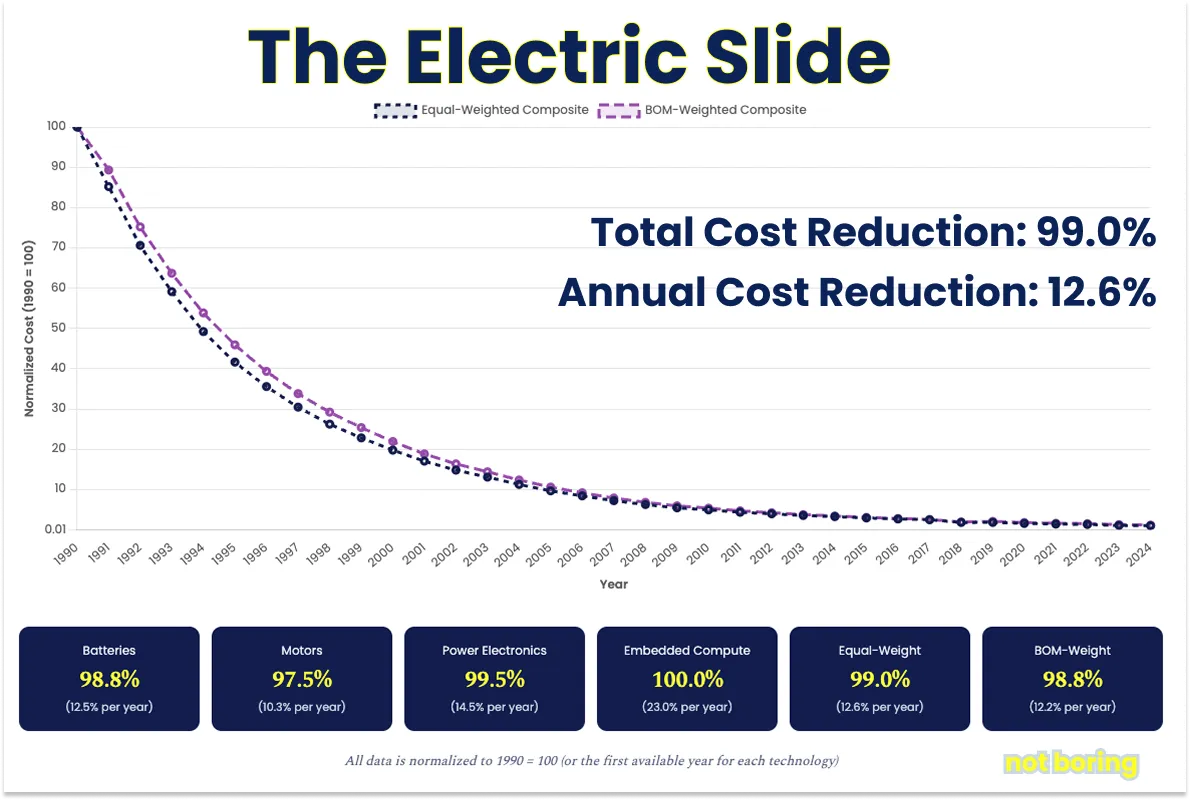

From solar on schools to solar in schools as Wakari and Waiheke bring energy into the classroom; electric farms get a boost and rural solar proven to have other benefits; Vessev goes global with first international order; Hutt City Council unveils a special electric rubbish truck; take a trip on the 'electric slide'; 16 solar myths debunked; and Norway's hypocrisy makes for good comedy.
Read more

More electric buses are on their way and NZTA has some recommendations; the future of transport is electric, but could it also be aerial?; the green loan economy in New Zealand (and how we can grow it); a young solar star makes her mark; an older star sees solar as the most positive story of the century; and BYD claims the EV speed world record.
Read more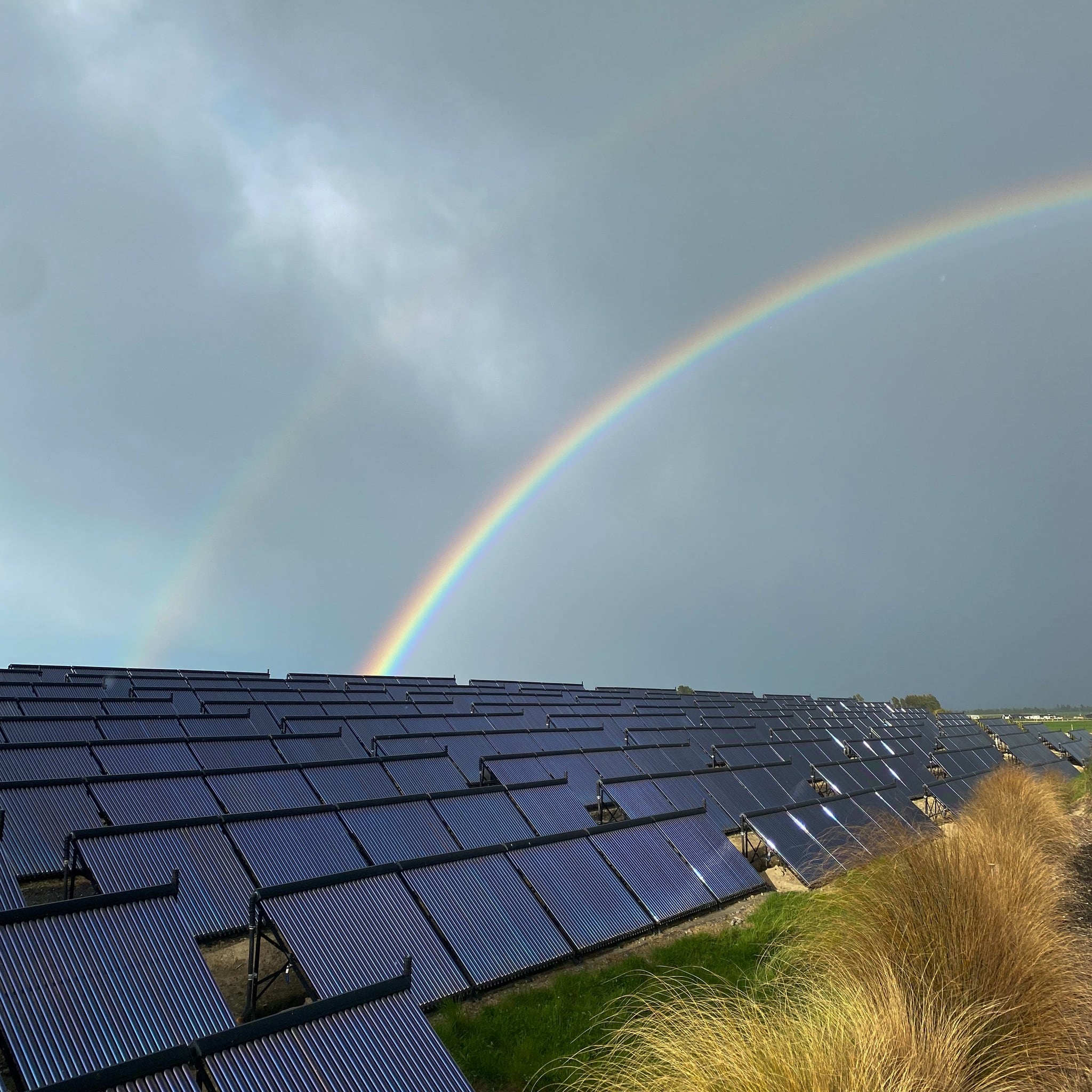

Batteries are helping to avoid black outs overseas and they're competing with quite big power sources in New Zealand, too; four school pools on the East Coast are now running on the sun, while massive gas bills make Hutt City Council's decision to go electric smart and Ōpuke Spa in Methven relies on solar tubes that provide the equivalent of 500 electric jugs; the story behind what the owner of The Currach on the off-grid Aotea Great Barrier Island calls world's first solar-powered Irish pub; Mint Innovation gets a big bite of the UK's mineral recycling cherry; and pain meets poetry as an electricity bill is read in the style of William Faulkner.
Read more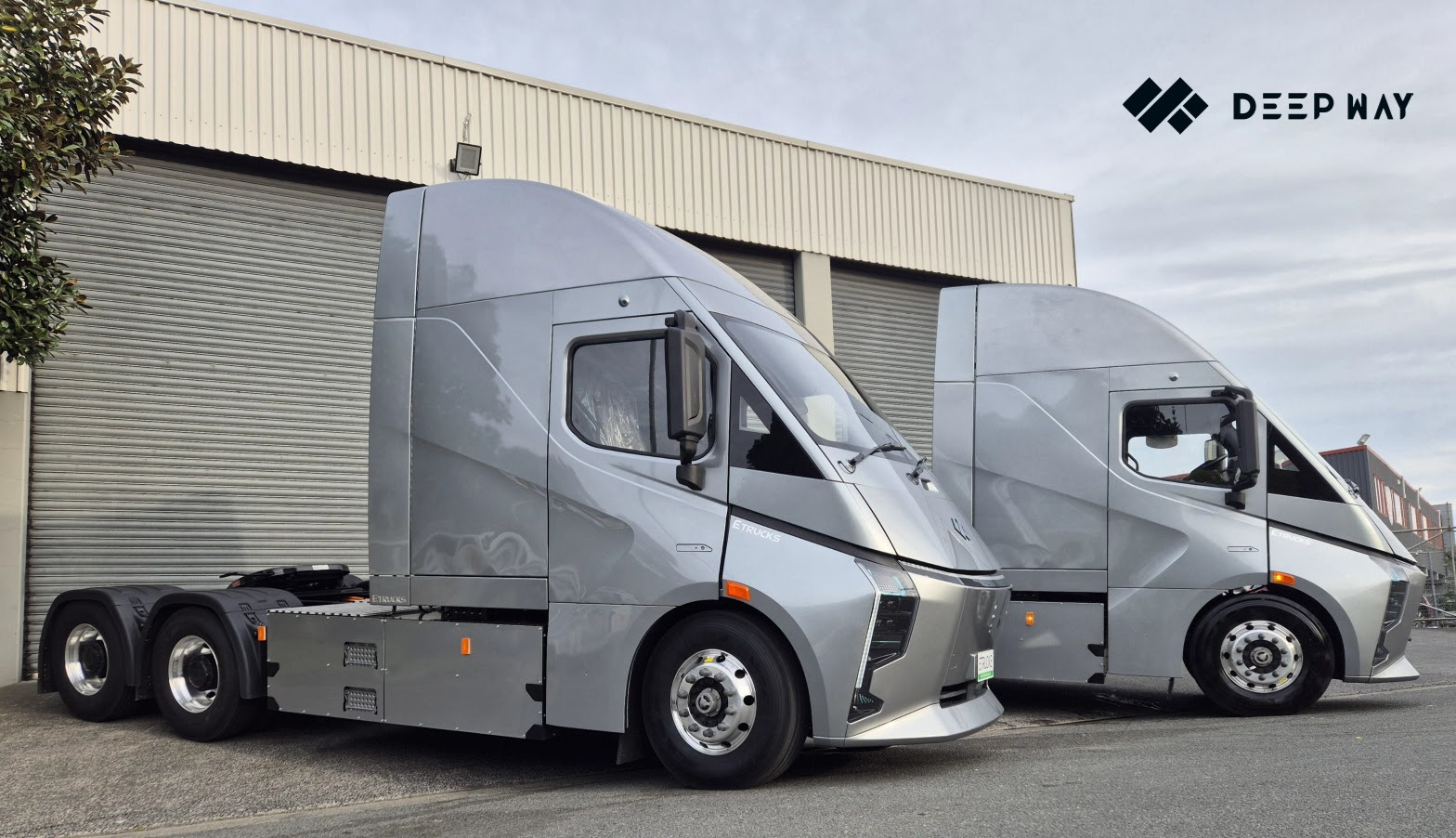

Bidirectional charging starts to float down the mainstream in New Zealand; how hot water and EVs could turn cities into giant batteries; Nelson joins the smart 'n sunny club and puts some panels on public buildings; good news as China goes backwards; two new electric big rigs reach New Zealand; and a potential solution for Shotover Jet.
Read more

The big solar installs continue in New Zealand at Go Media Stadium and Ngā Hua e Whā, the largest marae in the Southern Hemisphere; rooftop solar closes in on our biggest power plants; the world's biggest battery is switched on in Australia and lots of small batteries play an important role in California; Bloomberg looks at the incorrect predictions on EV adoption and how they're wrong in both directions; it's not just the wealthy countries adopting EVs as Nepal hits 76%; GM gets the record for longest drive on a single charge; and dads like electric stuff.
Read more

When it comes to electric farming, "the numbers are becoming undeniable," says Nicholson Poultry's Jeff Collings. With 60kW of solar, a Nissan Leaf as a 'farm quad', electric mowers, an electric ute that can run a water blaster, and even a chicken manure scraper made out of a wrecked Tesla that, as Rewiring's Matt Newman says, looks a bit like something out of Mad Max, "almost everything is electric". There aren't many others in New Zealand who have gone this far down the electric road. And, with his electric Stark Varg, the fastest off-road motorbike in the world, he's obviously having plenty of fun on that road, too.
Read more

Talk about driving change!ETrucks' Ross Linton is at the forefront of New Zealand's nascent electric trucking scene and can claim responsibility for a number of firsts, from the country's first electric concrete truck to the country's first battery swap set up. Since he brought his first electric truck in to the country back in 2018, the technology has advanced massively and driving on electrons has become quite a bit cheaper than diesel and, not surprisingly, that's inspiring a great deal of interest among businesses.
Read more

'I'm a bogan and I have no problem with the bastardisation of motor vehicles. You can stick whatever motor you like into whatever else you like.' Antz Davies, you are a true boganic Bright Spark and we salute you because it's the bogans that we need to be convincing! Davies is the main brain behind Watt Rods, a Lower Hutt company that converts old cars to electric. "Any and all vehicles, old or new, four wheels or two, big or small, on road or off, fully customised to your requirements."
Read more

Solar is already cheap and an increasing number of farmers are discovering that, but Mattt Luscombe has found a way to make it even cheaper. The founder of FarmGen says architects like steel, but engineers like efficiency and taking steel out of the build and instead relying on ground anchors means the owners get more generation for less outlay.
Read more

We love a bit of renewable hydro power in New Zealand, but Ray Tomlinson from JT Group has brought a new meaning to that phrase with what he calls "probably the first battery electric operated commercial water blaster".
Read more

Whether big or small, it makes sense to go electric when you're building new and Parakiore, a $500 million project located on the site of an old brewery in Christchurch, is a great example of that.Parakiore will be the largest indoor sports facility and swimming complex in Australasia when it opens soon and, as Christchurch City Council's head of facilities and property Bruce Rendall says, choosing to use local electrons instead of burning molecules was about reducing emissions AND reducing the financial burden on ratepayers."We look at solutions that do both."
Read more

It's not just homes that are getting off the gas. A number of big new facilities are going all-electric, too, including the new Te Kaha / One NZ Stadium in Christchurch. As project director Kent Summerfield says, the covered 25,000 seat stadium (30,000 with the temporary seats) will run entirely on electrons, from the cooking to the heating to the ice baths to the machines required for maintenance and operation.
Read more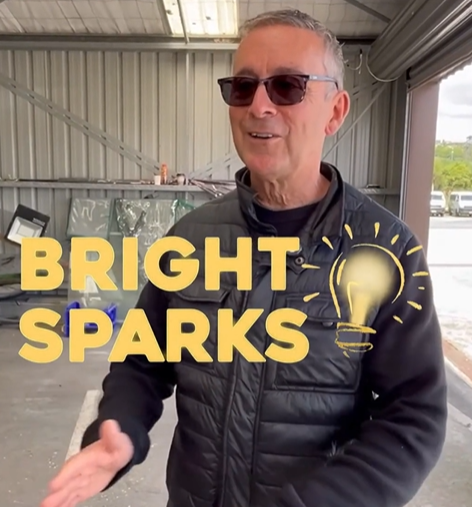

There’s plenty of energy emanating from the ground at Te Puia in Rotorua. And there’s plenty of creative energy emanating from those studying at the New Zealand Māori Arts and Crafts Institute. Now there’s also plenty of electric energy, because the business has upgraded its fossil fuel vehicles and added a big solar system so they can run on the sun.
Read more

Meet Frankie, “the ute that looks like a Ford Ranger, acts like a Nissan Leaf and drives like a dream”.
Read more


